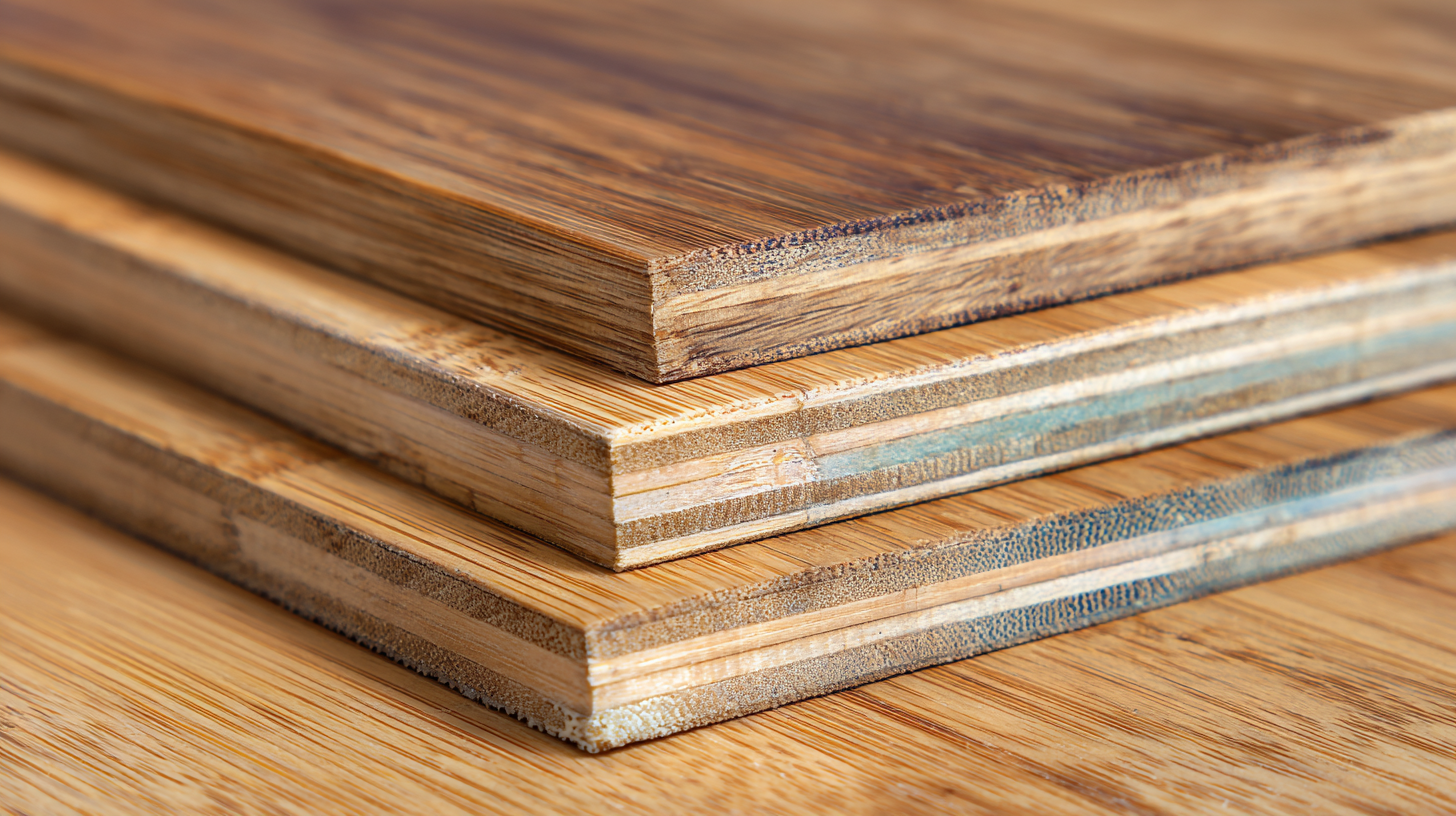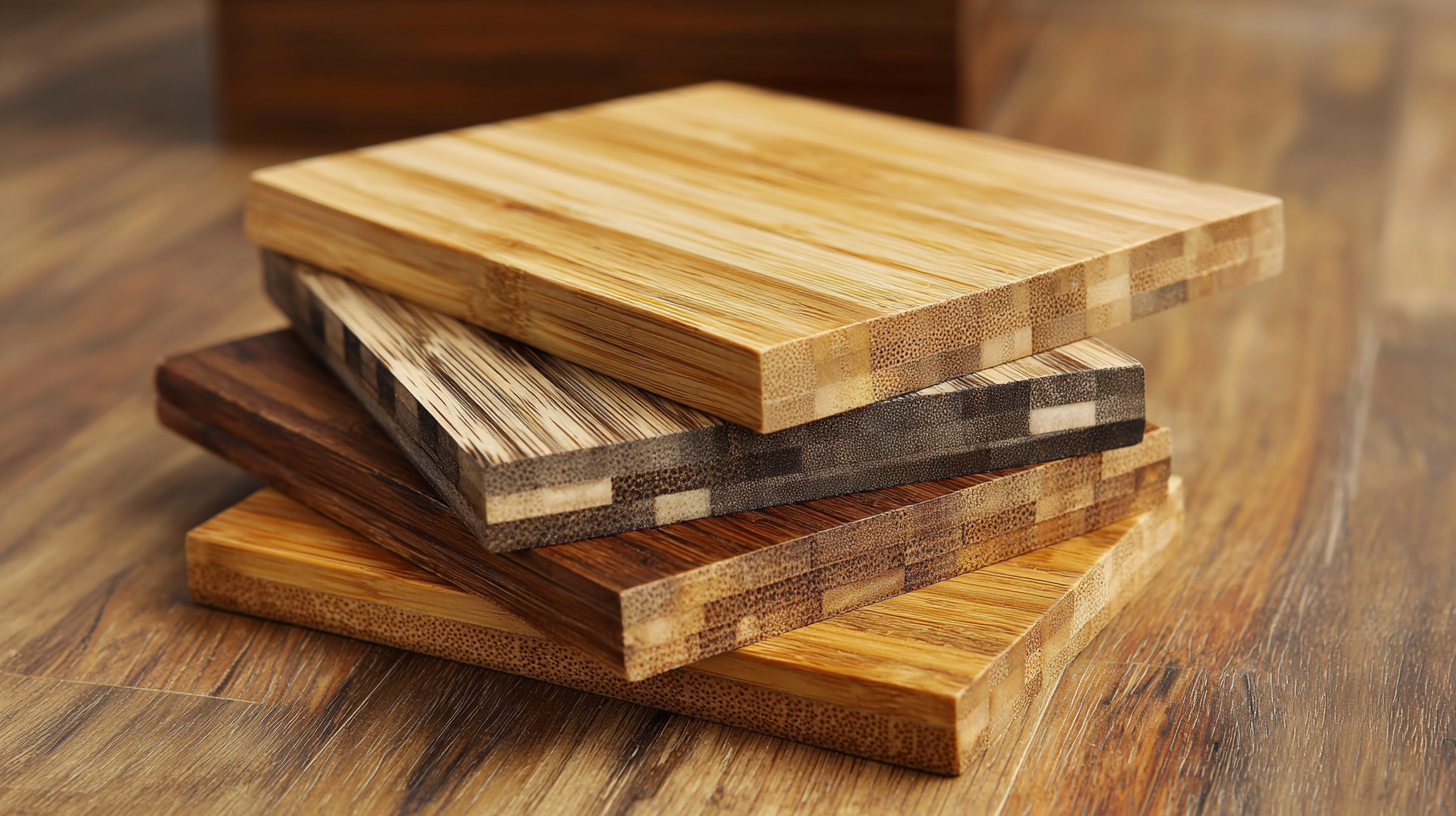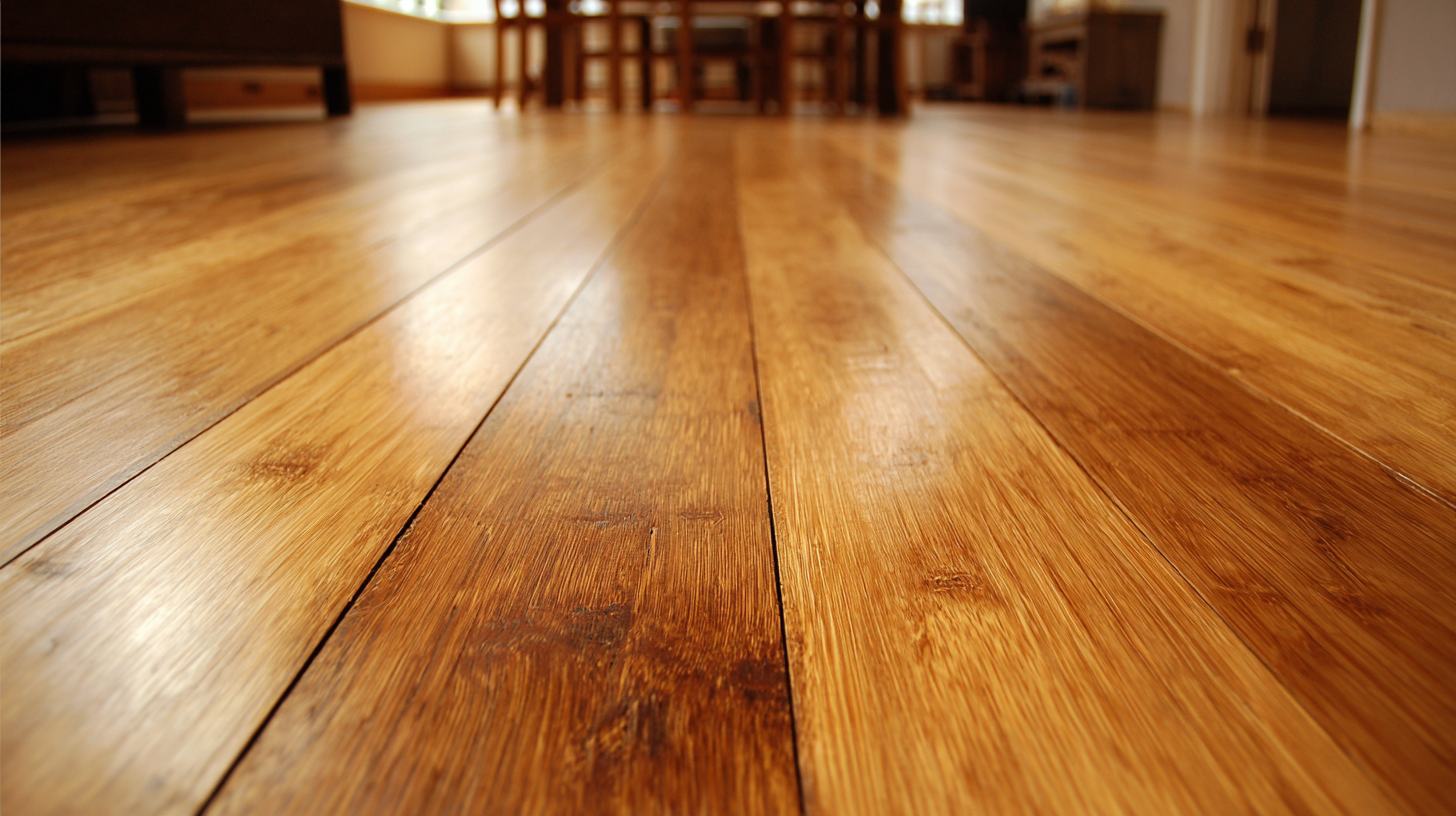Leave Your Message
-
Whatsapp
-
Whatsapp
As the demand for sustainable and eco-friendly building materials continues to surge, Bamboo Plywood Flooring emerges as a leading choice for environmentally conscious consumers and developers alike. With the global bamboo market expected to reach USD 98.8 billion by 2025, and the bamboo flooring segment anticipated to witness a significant CAGR of 4.58%, understanding how to identify premium suppliers is critical for informed decision-making. The unique properties of bamboo, including its rapid growth and high resilience, have positioned it as a viable alternative to traditional hardwoods. This article delves into key insights and industry data that can help stakeholders navigate the landscape, ensuring they select suppliers who meet quality and sustainability standards while tapping into the burgeoning opportunities that the bamboo plywood market offers.

When it comes to bamboo plywood flooring, choosing the right supplier is crucial. Premium suppliers not only offer high-quality materials but also provide assurance of sustainable practices. Understanding the importance of these suppliers can significantly impact the durability and aesthetics of your flooring. High-quality bamboo is harvested from mature plants, ensuring sturdiness and longevity, which is essential for both residential and commercial spaces.
Tip 1: Research the supplier’s sourcing practices. Look for suppliers who prioritize sustainable harvesting methods and can trace their bamboo back to responsibly managed forests. This not only supports environmental health but also guarantees a better quality product.
Tip 2: Evaluate product certifications. Premium suppliers often have certifications that demonstrate compliance with industry standards, ensuring that their bamboo plywood is free from harmful chemicals and meets quality benchmarks. Certifications like FSC (Forest Stewardship Council) can provide peace of mind regarding the sustainability of your flooring choice.
Selecting premium suppliers in the bamboo plywood industry is not just about aesthetics; it reflects a commitment to quality and responsibility. The right partner can elevate your flooring project while ensuring that you're making a sustainable choice for the environment.
When searching for premium suppliers of bamboo plywood flooring, it is crucial to understand the key characteristics that define high-quality products. One of the most important aspects is the sourcing of the bamboo itself. Top-tier suppliers should provide bamboo that is harvested at the right age—typically between 5 to 7 years—ensuring optimal strength and durability. This age allows the bamboo to reach its peak hardness, making the resulting plywood more resilient to wear and tear.
Another essential characteristic to consider is the manufacturing process. High-quality bamboo plywood is often produced using advanced technologies that enhance the bonding strength and minimize the use of harmful adhesives. Look for suppliers who utilize eco-friendly adhesives and maintain a low formaldehyde emission level, as this reflects a commitment to quality and environmental safety. Additionally, pay attention to the finishing techniques used, as a well-finished product not only looks appealing but also exhibits better resistance to moisture and impacts, ensuring longevity and performance in various environments.
When seeking premium suppliers for bamboo plywood flooring, evaluating supplier credentials is paramount. Certifications serve as a powerful indicator of a supplier’s commitment to quality and sustainability. Look for certifications like FSC (Forest Stewardship Council) or CARB (California Air Resources Board) compliance, which assure that the bamboo used is sourced sustainably and meets strict environmental standards. Suppliers with these certifications are often more reliable, reflecting their dedication to eco-friendly practices and high product standards.
In addition to certifications, a supplier's industry reputation can provide insights into their reliability and customer service. Researching client testimonials, case studies, and online reviews can reveal how other customers perceive their products and service. It’s beneficial to engage with industry associations or forums to gather feedback from peers. A reputable supplier will have a track record of positive engagements and transparent business practices, which can significantly influence your decision-making process when investing in bamboo plywood flooring.

When it comes to sourcing premium bamboo plywood flooring, understanding the pricing structures is crucial for achieving value without sacrificing quality. Recent studies indicate that consumers are becoming increasingly price-sensitive, yet they also expect higher quality and sustainability in their purchases. For instance, findings reveal that perceived sustainability can significantly enhance consumer confidence, leading to increased buying intentions. A clear understanding of consumer behavior and product pricing can guide suppliers in developing competitive pricing strategies that reflect both quality and environmental responsibility.
In a landscape where e-commerce is rapidly evolving, implementing effective pricing strategies becomes essential. Research suggests that utilizing a "Good-Better-Best" pricing approach can optimize profit margins while simultaneously appealing to different segments of consumers. This tiered pricing model not only provides consumers with options that fit their budget but also conveys quality at each level, encouraging them to invest in premium products. As the bamboo plywood flooring market expands, leveraging such findings can help suppliers position themselves better and meet the demands of informed consumers seeking sustainable and valuable options.
| Supplier Type | Average Price per Square Foot ($) | Material Quality Rating (1-10) | Production Time (Days) | Customer Satisfaction Rate (%) |
|---|---|---|---|---|
| Local Artisans | $5.50 | 9 | 14 | 95% |
| Bulk Suppliers | $4.00 | 7 | 30 | 85% |
| Online Retailers | $6.25 | 8 | 10 | 90% |
| Distributors | $5.00 | 6 | 20 | 80% |
| Importers | $3.75 | 5 | 45 | 70% |
When searching for bamboo plywood flooring, it’s essential to identify suppliers who prioritize sustainable practices. The bamboo industry offers many suppliers, but only a select few commit to eco-friendliness throughout their operations. Look for suppliers that source their bamboo from sustainable plantations, ensuring that the forests are managed responsibly and that the harvesting process does not deplete natural resources.
Moreover, evaluate the manufacturing processes of potential suppliers. Eco-conscious manufacturers often utilize non-toxic adhesives and finishes that minimize indoor air pollution. They also implement energy-efficient production methods that reduce carbon footprints. By choosing suppliers who adhere to these principles, you not only support sustainability but also contribute to a healthier living environment in your home. Engaging with suppliers who are certified by recognized organizations can further provide assurance of their environmental policies and practices. In this way, investing in bamboo plywood flooring becomes a conscious choice that benefits both you and the planet.

